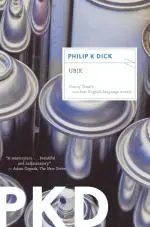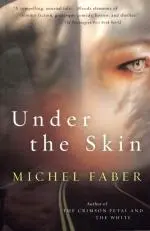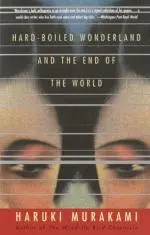All great stories incorporate some level of suspense, even when they're not conventional mysteries or thrillers. Authors pose the audience questions about the characters' actions and the overall development of the plot. Often, these questions are the same for any given genre. So in love stories, for instance, we wonder whether the couple will get together/stay together/get back together. In horror, we turn page after page to discover who will get stabbed/strangled/bludgeoned/eaten next; will the protagonist figure out the identity of the killer, or if the protagonist is the killer, will s/he be caught. The aforementioned mysteries/thrillers are concerned with crime-solving, fantasy deals with stopping an ancient evil, and sci-fi grapples with technological problems (or technology gone awry/dangerous technology fallen into the wrong hands).
Of course, not every example of sci-fi, fantasy, mystery, horror, et al. will follow these plot conventions exactly, but you get my point. We expect certain stories to follow a particular path. It's called narrative expectation, the idea that audiences have read more or less the same story over and over, and thus subconsciously anticipate certain tropes to pop up time and again. The best writers know how to satisfactorily deliver what us readers expect of a given plot, while simultaneously making their story original and suspenseful enough that we get lost in the narrative.
Then there are those books that purposefully and gleefully subvert our expectations. Every time we say to ourselves, "Oh, I think I know where this is going," the author's hand reaches out from the page and slaps us in the face. These books prompt expletives of "Wait, what?" "What the f@%$!" and "Oh, HOLY SH**!!!" These authors understand that a story is not a quick jaunt from point A to point B, but rather a long day spent slowly peeling onions, one layer at a time. Every layer removed answers a question and get us closer to the truth, but it also raises a new question in the process, compelling us in our confusion to peel all the way down to the core.
Here are five books that exemplify ‘onion-peeling’ texts. I’ll try to be as spoiler-free as possible, but the very nature of this column involves discussing some of the plot, and therefore, some of the surprises in store. I won’t give away the endings, obviously, but certain revelations will be revealed. If you haven’t read these books yet, get on it, because they’re pretty amazing.
![]() 1. 'Survivor' by Chuck Palahniuk
1. 'Survivor' by Chuck Palahniuk
Survivor begins with a man, Tender Branson, alone on a pilotless airplane, drinking all the tiny little bottles of booze, waiting for the aircraft to run out of gas and begin its plummet toward the earth. He decides to tell his story into the flight recorder, and right off the bat you know something’s off about this guy. He keeps using the phrase ‘what you’d call’; so for example, he says:
“The passengers, they did what you’d call their deplaning in the New Hebrides Islands. Then, after it was just him and me back in the air, the pilot parachuted out over somewhere. Some kind of water. What you’d call an ocean.”
Who is this guy? What would HE call a massive body of water? What’s his word for ‘ocean?’ Is he not a native English speaker? Is he an alien? What’s going on here?
Then, his next line: “I’m going to keep saying it, but it’s true. I’m not a murderer.”
Talk about a hook! And not only because of the ‘murderer’ bit, but also the phrasing in the previous sentence. It isn’t “I’m going to keep saying it, because it’s true,” it’s “but it’s true.” The character seems to acknowledge an understanding of every murderer’s denial of his/her actions. He gets that people expect him to deny his guilt, even when he’s most definitely guilty. ‘Yes, I’m denying this,’ he seems to be saying, ‘but it’s actually true. I’m not a murderer.’
Or is this an admission of guilt straight away. Is this character actually in denial about his actions, so he’s acknowledging the propensity of a murderer to automatically deny their guilt in order to assuage his/her own guilt? Aw, shit, my head hurts.
Bear in mind, all these questions arise in the first page and a half of Survivor. In the very next chapter we learn that, prior to somehow arriving on this crash-destined plane, Tender operated a suicide hotline from his apartment—but the twist is, he encourages people to off themselves. We also learn he grew up in a cult, and that his status as the last surviving member will catapult him into celebrity status. And then there’s Fertility Hollis, who...Well, I’m saying too much.
Survivor’s onion is quite potent, rotten in places and (bitter)sweet in others, but altogether delicious. Palahniuk knows how to write thrilling, mind-fucking page-turners, and Survivor is one of his absolute best.
![]() 2. 'Chronic City' by Jonathan Lethem
2. 'Chronic City' by Jonathan Lethem
Maybe one of the most understated quasi-magical-realism, quasi-conspiracy theory novels ever written. The characters consistently find themselves in extraordinary circumstances, mainly revolving around mysterious vase-like creations called chaldrons and an unbelievably destructive tiger loose in the concrete jungle of a possibly alternate-reality version of New York City (the chaldrons and the tiger may or may not be real, by the way). And while the characters respond appropriately (i.e., with shock and surprise, not with blasé indifference), Lethem's novel is really about people living their lives. In other words, to quote a long-forgotten '90s song by Ben Lee, "a lot goes on, but nothing happens."
And yet, despite this veneer of potential energy with occasional bursts of movement, Chronic City is one of the most compelling reads you’ll ever encounter, primarily due to Lethem’s provocatively dense prose and blatant foreshadowing at weirder things to come. Moreover, almost every aspect of the novel carries with it a giant question mark: the chaldrons, the tiger, the mysterious fog hanging over Manhattan (a possible metaphor for 9/11). The character Perkus Tooth experiences ellipsis, a riddled condition of his own naming, defined by protagonist Chase Insteadman as:
“A species of blank interval, a nod or fugue in which he was neither depressed nor undepressed, not struggling to finish a thought nor to begin one. Merely between. Pause button pushed.”
Even the protagonist’s name—Chase Insteadman—suggests impasse. And don’t get me started on his engagement to an astronaut stranded on a space station, a woman he feels he knows, but can’t quite remember. Trust me, this book is a strange, wonderful road trip, the kind that makes you say, “Gosh, I don’t know where the hell we’re going, but I’m loving the ride.”
![]() 3. 'UBIK' by Philip K. Dick
3. 'UBIK' by Philip K. Dick
Jonathan Lethem cites Philip K. Dick as one of his top influences, and it shows. Like his devout follower, PDK loves to drop us right into the action without much prep or explanation. I've only read two of his novels—the very famous Do Androids Dream of Electric Sheep? (mostly for its famous movie adaptation, retitled BladeRunner) and UBIK. And while the former is certainly an easily consumed but difficultly digested read, UBIK out-twists Electric Sheep tenfold.
Right from the get-go, we know things are going to be weird. Let's let the writing do the talking. Here's the first paragraph of the novel, inset separately from the rest of the text, written like some sort of advertisement:
"Friends, this is clean-up time and we're discounting all our silent, electric Ubiks by this much money. Yes, we're throwing away the blue-book. And remember: every Ubik on our lot has been used only as directed."
Uh, what? What's an Ubik? Who's talking? Why does an advertisement open the book? How much money? I imagine a guy stretching his arms as wide as he can. But Dick's not going to show us that, now is he?
We do eventually find out what this MacGuffin is—a kind of all-purpose salve that, get this, offers regeneration for people suffering in an increasingly degenerative world. Ubik, derived from the latin world "ubique," or everywhere, keeps the characters alive as their world recedes into the past.
And that's only the tip of this heady, brain-scrambling narrative. You don’t want me to discuss it anymore, believe me. Get Ubik!
![]() 4. 'Under the Skin' by Michael Faber
4. 'Under the Skin' by Michael Faber
I can't really talk about this one much without falling into spoiler territory. It begins with protagonist Isserley cruising Scotland's highlands in search of hitchhikers. At first, Faber hints that perhaps Isserley's looking for a fling, but then she gives up her first pick-up when she discovers he has children. "This made him a bad risk, from her point of view. Things could get very complicated when there were children involved."
Okay, maybe Isserley doesn't want to be a homewrecker. But no, we learn pretty quickly that it isn't a morals thing, but rather a "I don't want to pick up anyone who might be missed" situation.
Alright, a female serial killer narrative. That's pretty original, we don't see that much—wait, what the hell's an icpathua toggle?
I won't say anything more. I can’t, unless I want to spoil the whole thing. Just know this: no matter what direction you think this book is headed, think again.
![]() 5. 'Hard-Boiled Wonderland and The End of The World' by Haruki Murakami
5. 'Hard-Boiled Wonderland and The End of The World' by Haruki Murakami
In their landmark book A Panorama of American Film Noir, 1941-1953, Raymond Borde and Etienne Chaumeton identify five key adjectives that describe the basic tenets of noir: oneiric (or dreamlike), strange, erotic, ambivalent, and cruel.
Murakami's 1985 novel certainly fits this bill, and yet I wouldn't call it a noir, or even a neo-noir. Rather, I think this is a love letter to the genre that literally blends hard-boiled elements with magical realism and, at times, straight fantasy. Literally, because the book follows two narratives: one is set in “present time” and is heavily indebted to the works of Raymond Chandler, involving a Calcutec embroiled in an info war between a kooky professor and a band of thugs; the other is set at the End of the World, a strange place populated by unicorns and shadowless people living complacently purposeless lives (again, literally—the people there have no shadows).
The author presents mysteries in both stories, but the ultimate puzzle is how they fit together. For the sake of spoilers, I won’t go into detail about all the curve-ball pieces (including red herrings) Murakami throws at you, but let me assure you, Hard-Boiled Wonderland is one complex, maddening and thoroughly satisfying brain-game.

About the author
Christopher Shultz writes plays and fiction. His works have appeared at The Inkwell Theatre's Playwrights' Night, and in Pseudopod, Unnerving Magazine, Apex Magazine, freeze frame flash fiction and Grievous Angel, among other places. He has also contributed columns on books and film at LitReactor, The Cinematropolis, and Tor.com. Christopher currently lives in Oklahoma City. More info at christophershultz.com













